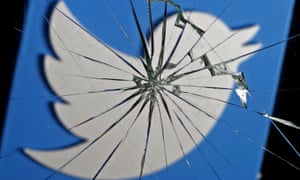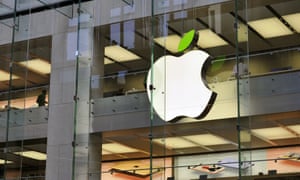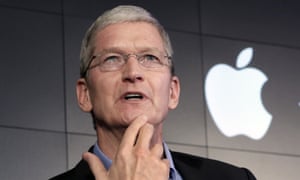http://www.theguardian.com/music/musicblog/2015/feb/24/is-new-music-killing-music-industry
New music has been introduced all the time. Its becoming more and more better and important to people that are really passionate about music. Having music does mean alot for peopel as it helps people when they are in different moods. For example if someone is sad they would listen to sad music to put them in that happy mood that they wanted.Its never been more wider and more faster and accessible than eveer. People didnt have the technology to do this and now they can.the number of new acts who are building sustainable careers is tiny – and shrinking. In 2009, again according to the BPI, 46 debut artists had an album sell 100,000 copies or more in the UK. In 2011, it fell to 32, and last year only 14 acts hit that mark. I was posed a question by a senior exec back in 2008, when iTunes was exploding,” says Will Page, director of economics at Spotify “Should you gamble $5m on one artist, or spread your bets of $1m each on five different artists? In an age of unlimited choice, do you bet big or bet small?”
The answer, so far, has been that the industry does both. But as income has fallen, artists are given less time to turn a profit. Tales of major-label signings being dropped after one album – sometimes before a record has been released – are becoming more common, even after enormous amounts of money has been spent on marketing the groups, as was the case with the Universal’s Monarchy and Palladium. Could the industry reverse its decline if it returned to what might be considered the old-fashioned model: sign fewer artists and work with them for longer periods, worrying less about the short-term fix of big hit singles and spending more energy building catalogues that generate cash over a much longer period?
The pop, R&B and country promotions staffs at majors are enormous around America, and sometimes around the world – and that machine needs to be fed,” he says. “And that machine does a very good job, but they have a different infrastructure and different bills to pay. A major is going to expect quicker returns, and therefore we’re not seeing a lot of second, third and fourth albums, or lengthy careers.”Glassnote has a deal with Universal, and its artists – which include Mumford & Sons, Chvrches and Phoenix – are able to plug in to the major label’s global distribution and promotion systems. But Glass argues his label’s independence gives it an ability majors may lack to sign artists for the long haul.
The changes in how music is being heard may make a move away from short-term thinking inevitable. Streaming services such as Spotify, which ensure that an artists’ previous albums are available for discovery – and income generation – when a fan discovers a band via their fourth or fifth LP, could help lead labels away from breaking new artists and prioritising blockbuster hits.
What’s interesting about streaming is that the lifetime value proposition counters what’s been a 50-year mindset of front-loaded sales that decay over time,” Page argues. “This isn’t to suggest one model is better than the other, as sales are transactions which lead to consumption, whereas streams are consumption without transaction. But it will involve a mindset shift of watching new bands go into week one with, say, 400,000 streams, and then watching that figure grow, and not decay, over time.”
https://www.theguardian.com/technology/2016/feb/16/which-is-the-best-music-streaming-service-spotify-apple-music
Music streaming is on the rise: in 2015 in the UK fans played 26.8bn songs on audio-streaming services alone, with another 26.9bn streams of music videos on services like YouTube. This means that alot of music is coming from the internet and isnt being shown on the video. Other streaming services like spotify has been doing really well. it launched in 2008 and has been steadily improving since then. Many of the new features added in the last year or two have focused on helping you discover music.
Playlists are key to that: Spotify has a wide range that are updated with new songs every week, but it also has a deep catalogue of playlists created by outsiders: labels, media, musicians and fans. Follow a few, and you’ll have a regular supply of new tunes.
Every Spotify user gets their own Discover Weekly playlist too, updated every Monday with 30 new songs that its recommendation algorithms think you’ll like, based on your own tastes and those of people like you. It’s an excellent idea. Spotify has better social features than its rivals, with the ability to add friends and see their playlists and listening, as well as a built-in messaging system to ping music back and forth. Creating and sharing your own playlists is easy too.Another strength is the system for following musicians’ profiles and getting notifications when they have new music out. A recently introduced Concerts feed shows you upcoming, nearby gigs by artists you’ve listened to, which is useful.
Spotify’s free tier has audio advertising, but is missing offline listening and – on mobile – the ability to pick tracks on-demand, although you can play an artist’s catalogue on shuffle mode. Pay £9.99 a month, and you get full access (including offline), no ads, and a higher-quality streams option.
Apple music-Where Spotify falls down is its family plan, which is more expensive than rivals. You can add up to four extra accounts for £4.99 each, but that means you’ll pay £29.95 a month for a family of five compared to Apple Music and Google Play’s £14.99 for six. In this case some peopel would rather go to Apple or Googles play as they are cheaper and it works out cheaper. Sometimes because Apple is known more older people would want to stay with Apple.Apple raced to 10 million paying subscribers six months after launch – a milestone it took Spotify nearly six years to reach – so Apple Music is catching on.
Another unique feature, Apple Music Connect, remains a misfire. It could be brilliant: a mix of Twitter, Instagram and SoundCloud where musicians post exclusive stuff including raw demos. Few are using it to that extent yet, though.
Dedicated iTunes haters won’t enjoy Apple Music’s interface, but navigating your way around isn’t too hard, even if creating playlists is a pain. It’s less social than Spotify too: there’s very little sense of what your friends are listening to.Apple was early on to the family plan idea: pay £14.99 a month and you can have up to six people on your account. Needless to say, Apple Music works well on Apple TV, its recent launch on Sonos was welcome, and contrary to expectations, its Android app is pretty slick too.
Google play- service has a neat, stripped-down design: plenty of white space in contrast to Spotify’s darker design. Searching artists, albums and tracks is easy, as is creating your own playlists.
There’s a good introduction feature that asks you for your favourite genres and artists, which will help tune Google Play’s recommendations for playlists, albums and radio-style stations. The playlists and stations are good, based – like those on rivals – around specific genres, themes and activities.Like Apple Music, Google Play’s stations can be surprisingly specific: Ambient Scandinavian Stargazing, Sad Rappers and Girl Hold My Earrings – the latter specifically for women spoiling for a fight after someone has stolen their man. Contrary to what you might expect of Google, there’s a very human touch to all this. More stereotypical is the lack of many social features beyond the ability to share your playlists on social networks. As with Apple Music, what your friends are listening to and recommending is something you’ll have to find elsewhere.
For anyone using Google’s cloud-music storage service, Google Play Music works seamlessly with that: you can upload your downloads collection – most easily by dragging and dropping it in the Chrome web browser – with space for up to 50k songs.
https://www.theguardian.com/technology/2014/aug/29/music-streams-downloads-mark-mulligan
Streaming music is cannibalising download sales. It’s a phrase anyone connected with the music industry is hearing a lot about in 2014.It’s a technological shift causing a lot of panicked flapping about, from an industry that counts “panicked flapping about at technological shifts” as one of its core skills.It shouldn’t be this much of a shock: the idea of an eventual transition from downloads to streams – and from ownership of music to access to it – has been talked about since the early days of legal download stores.
What’s causing the flapping in 2014 is the current pace of the transition, as big music markets – the US especially – have been taken by surprise with how quickly download sales appear to have peaked, then tipped into decline.Many musicians are worried that royalties from streams of their songs won’t make up for falling sales in their CDs and downloads. Meanwhile, some music executives who see the rise of streaming as inevitable are fretting at losing control of the transition.
It also warns that 45% of people who buy downloads are now also streaming music, and that so far, only 15% of free music streamers have signed up for a trial of a paid service. And Mulligan has views on why the current transition is shocking people, despite having been talked about for a decade.“Anything that requires consumers to adopt new technology always takes a while to happen. It’s very easy to over-estimate the near-term impact of a new technology, and under-estimate the long-term impact. We’re somewhere between those two points with music,” he says.“Every new generation of music service steals from the last generation’s customers. Apple stole Amazon’s best CD buyers, and Spotify has now stolen those same customers from Apple – or at least the same sorts of people.” This is what competing does. It makes people take the streaming services away all the time. Some people think that only Apple really made a success of selling music downloads, that market is still weighted towards more tech-savvy early adopters: the kind of people who were also first to realise that paying £9.99 a month for unlimited access to something like Spotify was a good deal.
http://www.theguardian.com/music/2015/jul/09/facebook-planning-music-streaming-service
Now that people have seen how big the music industry can be they are wanting to be in that same game. For example, big companies like facebook are deciding if they should make the streaming service for them too. This means that everyone can see how good and popular its becoming and social media wants to do the same because it will make them popular too.
According to the music and tech news website Music Ally, which cites sources speaking off the record, Facebook is planning to follow its trial of native videos – videos that play only within Facebook, rather than on a parent site such as YouTube, and an experiment that is likely to include music videos – with an audio streaming service. Music Ally notes that “its plans to monetise music videos [are] an important stepping stone towards the on-demand audio service”.Streaming has become an increasingly important part of music industry revenues. In 2014, 9% of worldwide digital revenues came from ad-supported streams, and 23% from subscription streams, according to the global industry body IFPI. The number of paying subscribers worldwide grew by 46.4% last year, with subscription revenues rising by 39%, making it the fastest growing revenue stream.


